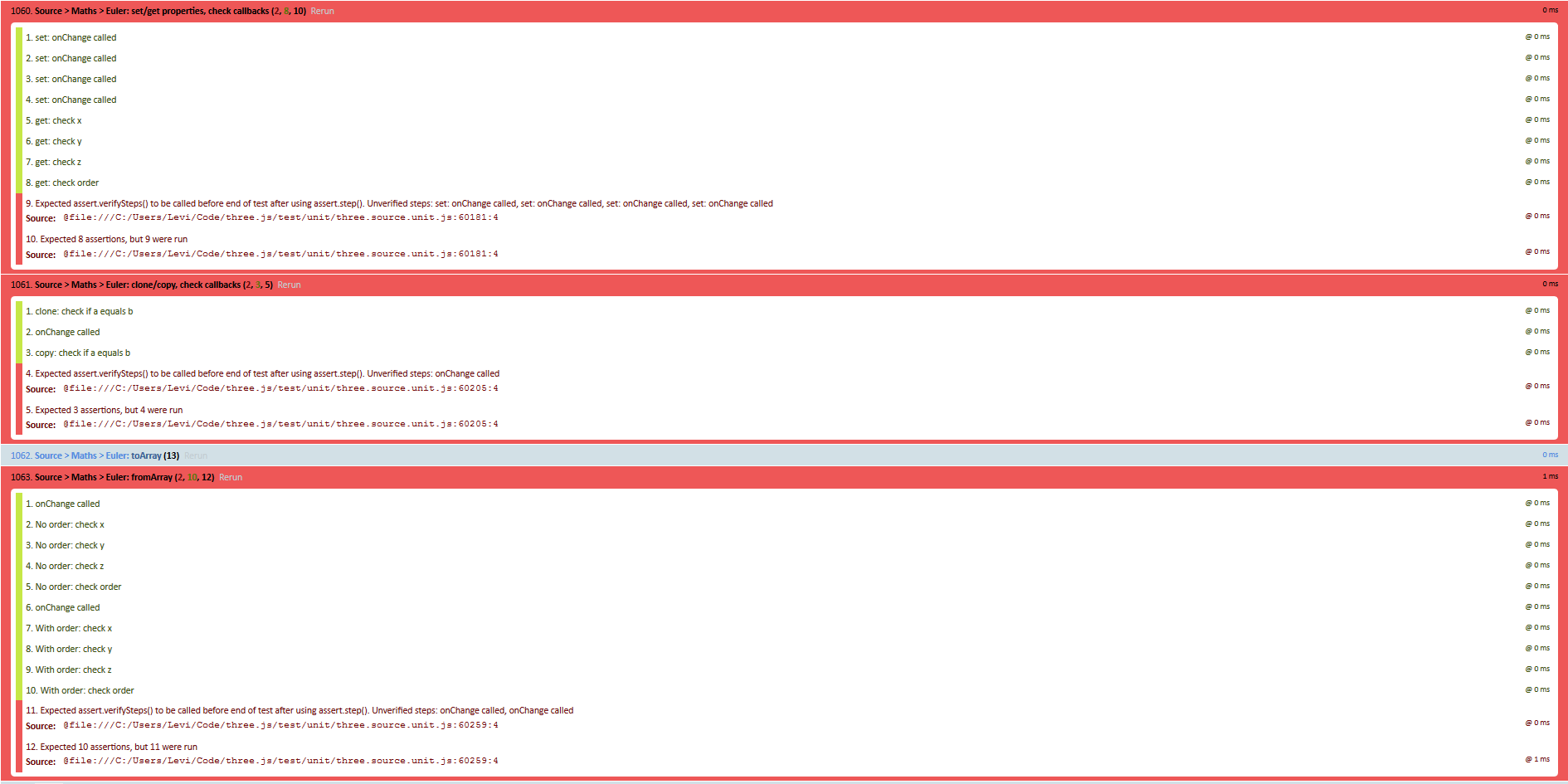-
-
Notifications
You must be signed in to change notification settings - Fork 35.5k
New issue
Have a question about this project? Sign up for a free GitHub account to open an issue and contact its maintainers and the community.
By clicking “Sign up for GitHub”, you agree to our terms of service and privacy statement. We’ll occasionally send you account related emails.
Already on GitHub? Sign in to your account
Failing tests (with a clean install of three.js dev) #13606
Comments
|
In #13607 I made a proof of concept to correct one of the three failing tests. Hope to hear whether this is a goose chase or that this is something worthwhile to pursue further for the other failing tests. Thanks! |
|
What about the remaining two fails? You've mentioned they happen only in the browser, right? Can you please run the test for |
|
Hey @Mugen87. The model could not be downloaded due to CORS being disallowed for the Funnily enough when searching this problem from a two link process from stack-overflow back to three.js, running things locally is made. On this three.js page the following suggestions are made:
Either choice might go hand in hand with some README text to setup testing. An other funny way would be to link the file served by three.js domain itself. But then the test will be dependent on an internet connection. What do you think the best option is? Hope to hear back from you! |
|
@levilime this is not so much a failing of the tests as a failing of the way you've set up your testing environment - every web app that loads files locally would fail in the exact same way in this case. A |
|
Good idea. I'll make a PR. |
|
Nice, good work 😄 |
Some failing tests in a clean install of three.js dev branch
In my local version of the current three.js (eb8f846) five tests fail. Two of these only fail when using the QUnit browser GUI that is generated in
test/unit/UnitTests.htmlwhen doingnpm run build-test.The three remaining also fail when doing

npm run test. They are the following:I think these three tests fail relating to a issue with the behavior of
assert.stepin Qunit as highlighted here: qunitjs/qunit#1226 . It shows that counting the assert steps is not completely transparent from a test writing perspective.The other two failing tests only happen in the browser GUI and are these:

Because they work when running
npm run testthey are less of a priority to fix.I wonder if it is interesting to fix these, although it seems from previous discussion that they seem to still work for some developers.
To reproduce I suggest to create a clean version of the code base with a clean npm install.
I run npm
5.6.0and have the windows 10 operating system.The text was updated successfully, but these errors were encountered: